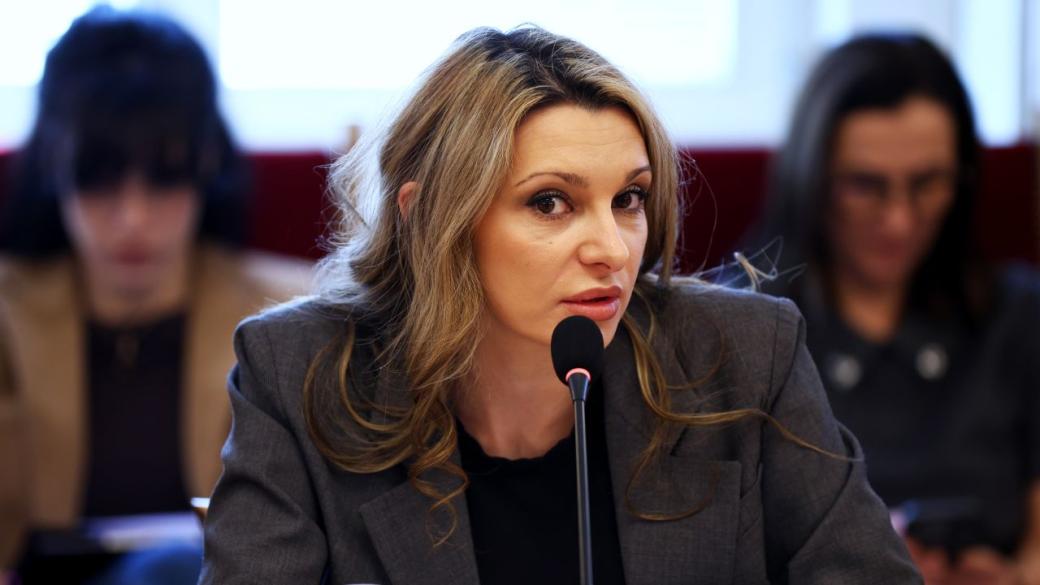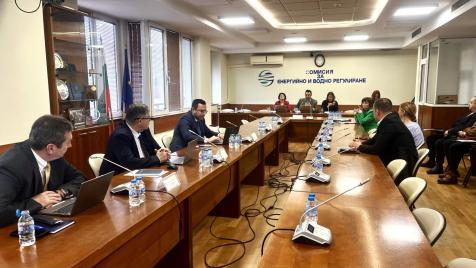On an unprecedented fast track: The state partially nationalizes Lukoil
The bill, adopted by the Energy Commission in a matter of seconds this morning, passed two readings in the chamber

© ECONOMIC.BG / BTA
In an unprecedentedly swift move, the law giving the state real control over the activities and ownership of Lukoil-related companies in Bulgaria was finally adopted by the ruling majority. The bill was unexpectedly submitted to the National Assembly on Friday morning, and a few minutes later it was put to a vote in the Energy Commission, where it was approved in about 30 seconds, after which it was voted on in two readings in the plenary hall on the same day.
The entire procedure, on such an important issue, took less than an hour, and not a single representative of the Council of Ministers, which will actually be responsible for the management and sale of the Russian company's assets, was present in the chamber. The opposition stated that Prime Minister Rosen Zhelyazkov did not agree with the bill, which they believe contradicts the Constitution and represents a de facto nationalization of the refinery, tax warehouses, and the fuel sales business.
Amendments to the Law on the Administrative Regulation of Economic Activities Related to Oil and Oil Products provide for the expansion of the powers of the special commercial manager so that he can manage and even sell the companies instead of the current Russian owner under international sanctions. It was submitted on Friday morning by Stanislav Atanasov (DPS-New Start), Pavela Mitova (ITN), Delian Dobrev (GERB), and Ivan Ibrishimov (BSP), shortly after 9 a.m. It was passed by the relevant committee, and an hour later it was submitted for discussion in the chamber, where, at Anastasov's suggestion, it was considered at second reading.
The four ruling parties, independent MPs, and one member of the APS voted in favor of the amendments.
Between the two readings, Pavela Mitova made amendments, reading them quickly from the podium, which caused discontent among the opposition, who felt that there had not been enough time to review them.
Using examples such as KTB and Bulgartabac and quoting poems, MPs divided into two camps – "for" and "against."
The bill was initially defended by only one of its sponsors, Stanislav Anastasov of the DPS-New Start party, who argued that any delay in its adoption would allow the refinery to cease operations.
There is fuel, but we cannot afford to let this strategic Bulgarian asset stop working," he said.
Later, Pavela Mitova, chair of the energy commission, joined in his defense, responding to criticism of the incredibly fast procedure:
There was a lot of criticism that we didn't react, and today you are criticizing us for rushing. The decision we are making is timely."
She specified that the proposal had been agreed with American and European partners and was intended to "protect Bulgarian citizens."
According to the government, the law is based on a "German model approved by OFAC."
However, the opposition raised questions about the lack of control over the actions of the special administrator, criticized the possibility of selling the assets, and expressed doubts about the transparency of the future market valuation.
According to Asen Vasilev, the provisions that give the special administrator the right to dispose of assets without judicial control are "extremely worrying." He warned that such action could be challenged and lead to a reaction from international partners.
Daniel Prodanov of Vazrazhdane described the legislative act as an attempt to circumvent US sanctions. According to him, this is a special type of nationalization because the special administrator will have the opportunity to sell the assets, not just manage them.
According to Radoslav Ribarski from PP-DB, the bill circumvents US sanctions and gives the special administrator the right to choose the future owner. He believes that the administrator will propose a company to acquire them, and before that, a "lenient" offer will be made for Lukoil's assets.
This did not work on a global level, so you are trying it on a local level. Time is short, and the legal changes only deal with who will acquire Lukoil, while we need to secure fuel supplies. I find it shameful that the Council of Ministers has not said a word on this issue. November 21 is approaching, and we have no plan for how fuel supplies will be secured," he said.
Krasimir Manov from MECH compared the situation to the crisis surrounding KTB and stated that "the state, which is the owner by accident, is nuclear and one of the five great powers," referring to Russia, adding that "there are forces that should not be played with" and that "the situation is complex and almost unsolvable."
Tsontcho Ganev warned that because of the bill, Bulgaria could be "punished and sanctioned by Russia" and fined "hundreds of millions of leva," stating that Vazrazhdane would refer the matter to the Constitutional Court and send an inquiry to the European Commission.
GERB's Delian Dobrev confirmed that the texts had been "sent to OFAC" and that "the White House is familiar with them and accepts them." According to him, the goal is "to stop revenue going to Russia," as the refinery will cease operations if the state does not take action.
Translated with DeepL.

 Aleksandra Sotirova-Delcheva
Aleksandra Sotirova-Delcheva 


